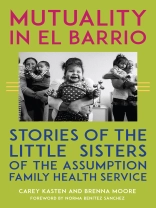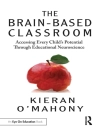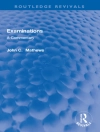The stories of 18 immigrant families from East Harlem and their experiences with one of New York’s deeply-rooted organizations
On any given weekday, people stream in and out of Little Sisters of the Assumption Family Health Service’s bright, airy building on 115th Street. They are mostly mothers who find their way to LSA, sometimes only weeks after crossing the border from Mexico, having heard of the support that las hermanitas (“the little sisters”) offer. Opening a window into the world of New York’s Spanish-speaking newcomers, Mutuality in El Barrio combines oral histories with archival research of the history, spirituality, and ministry of LSA to present how this well-established organization serves vulnerable populations with a unique approach they call “mutuality.”
LSA is part of a network of East Harlem’s powerful grassroots organizations that draws from the remarkable strengths of local families in its community. It is a place of healing and empowerment focused on the overall holistic health of resident families. Long-term relationships are cultivated here rather than quick fixes, and it is a place that nurtures people’s full potential as leaders, parents, and advocates for themselves. In Mutuality in El Barrio, eighteen mothers share how, through the help of LSA, they managed to navigate a strange city and an unfamiliar language in a neighborhood that has long been a site of incredible challenges and extraordinary strength, creativity, and cultural vitality.
These personal accounts of mothers, long-time LSA staff, and nuns reveal how these women found solidarity, accompaniment, care, neighborhood transformation, and binding connections through mutuality that helped them grow and connect in East Harlem. Their stories shine a light on an organization that began as a small community of vowed nuns who, like these mothers, also trace their origins abroad.
Inhoudsopgave
Foreword by Norma Benítez Sánchez | ix
Introduction : Humanizing Stories: Relationships and Beginnings | 1
1. “The Power of Growth Is in Relationship”:
The History of the Little Sisters of the Assumption Nuns in East Harlem, 1865– 1970 | 21
2. “LSA Is Like a Second Home”: The Story of Melina Gonzalez | 62
3. Voices from the Neighborhood: Immigrant Mothers at Little Sisters | 87
4. Mutuality for a New Era | 122
Epilogue : On Sister Susanne’s Passing and the Shadow Side | 165
Acknowledgments | 179
Appendix: Data on Mothers Interviewed | 183
Notes | 185
Index | 199
Over de auteur
Brenna Moore is a professor of theology at Fordham University. She is a specialist in the area of modern Christianity, with a focus on Catholic intellectual and cultural history in twentieth- century Europe. Her most recent book is Kindred Spirits: Friendship and Resistance at the Edges of Modern Catholicism (Chicago, 2021), in which she explores a community of Catholic artists and thinkers who responded creatively to the far-right surges of xenophobia and nationalism in the mid- twentieth century. She is a longtime volunteer at the Little Sisters of the Assumption Family Health Service and serves on their board of directors.












